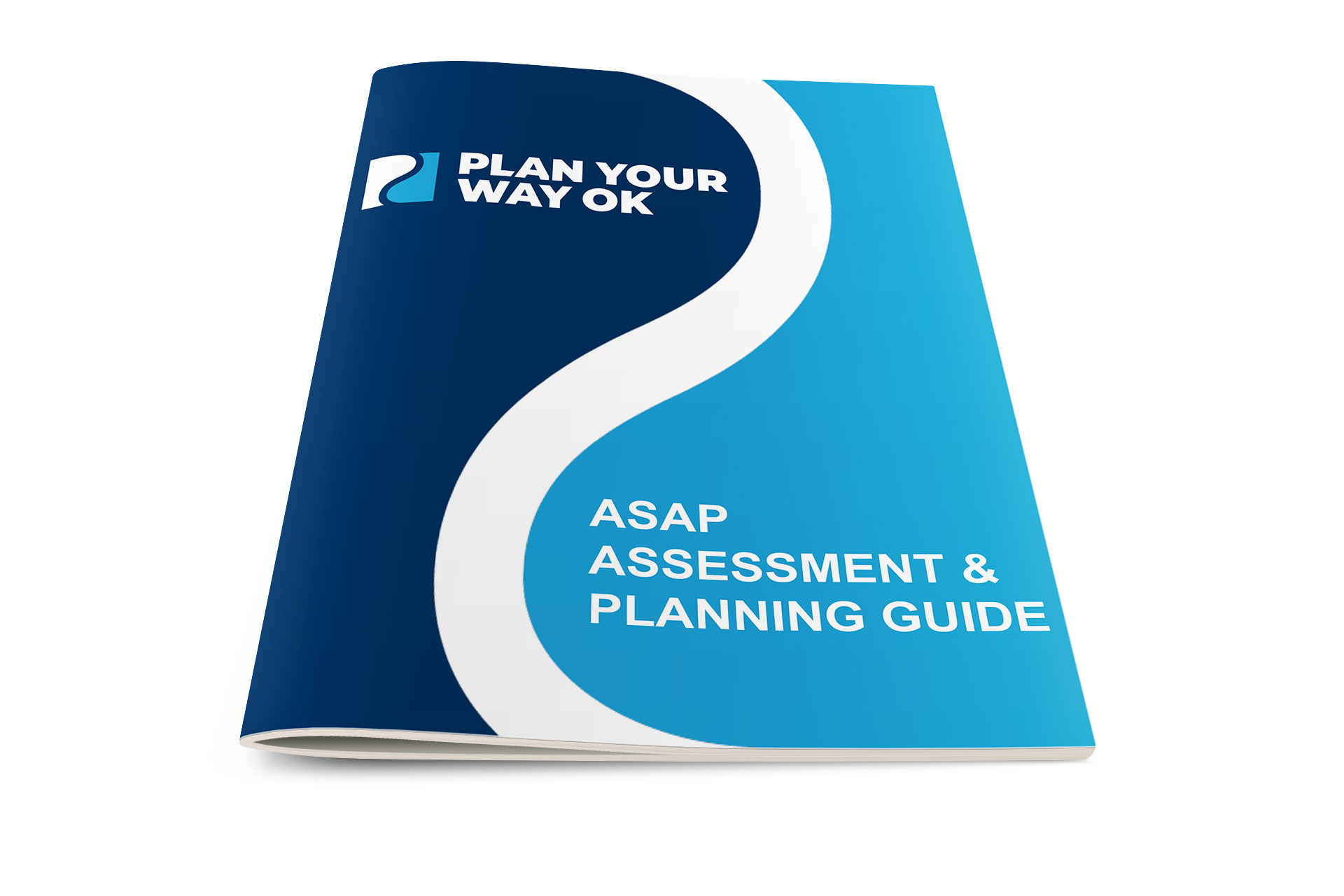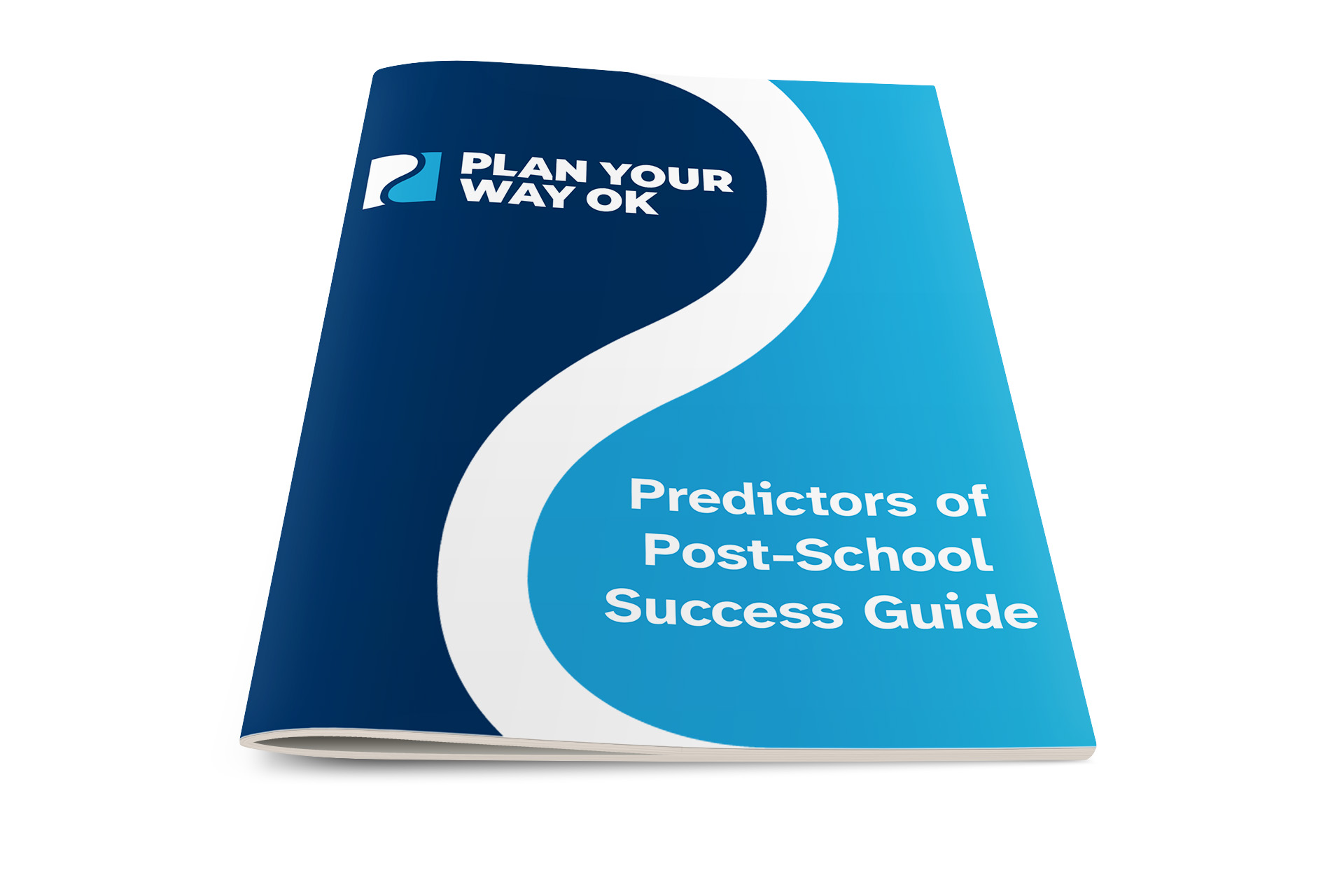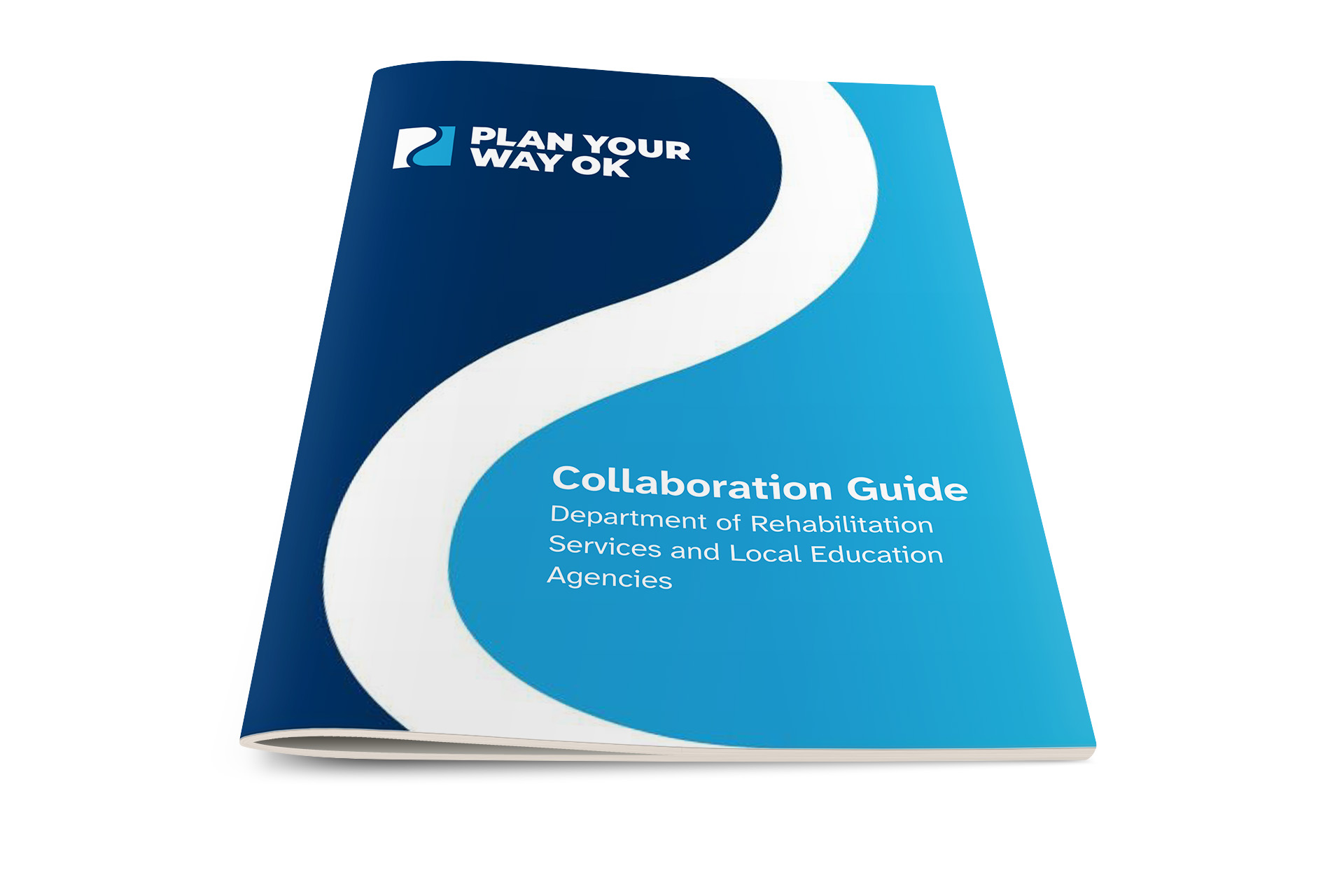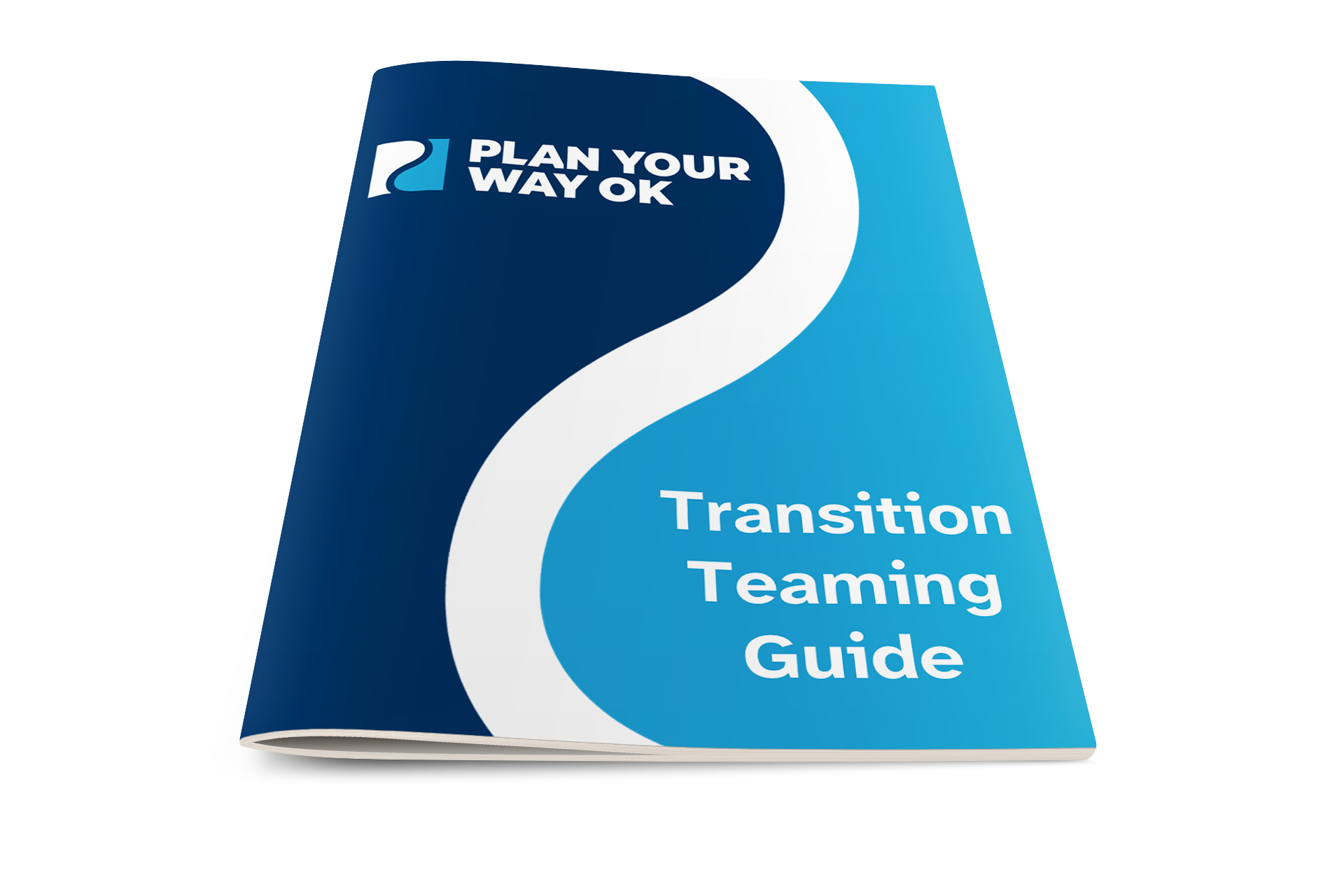“Success is a team effort. When agencies and partners collaborate, we create the perfect recipe for growth, innovation, and impact. Strong partnerships lead to greater success for everyone involved.”
Effective Secondary Transition Planning
Effective secondary transition planning requires early engagement, a comprehensive focus on academic, functional, and social skills, and student-centered strategies. Collaboration with families and community partners is essential in addressing students’ post-secondary goals, such as education/training, employment, independent living, community participation, and in supporting their long-term success. Partnerships among transition agencies and stakeholders at the school, district, community, county, regional, and State levels are the path to improving outcomes for children and youth with disabilities in Oklahoma.
Together we can maximize opportunities for career exploration, work-based learning, paid work experiences, and learning, living, participating, and working in our communities statewide!
Plan Your Way OK is here to encourage collaboration, enhance existing partnerships, and develop new ones! These resources were developed to support educators in understanding transition services and strengthening collaboration with DRS to better serve students with disabilities. Below, you’ll find practical tools, guidance, and connections to state agencies, advocacy groups, and family partners—all designed to help you navigate transition planning with confidence. Our vision is to empower educators and partners to work together to create meaningful opportunities and improve outcomes for every student.
Self-Determination & Self-Advocacy
Supporting Self-Determination in Children and Youth with Disabilities
Educators, counselors, and other professionals play a key role in fostering self-determination. This involves building the skills and confidence to set goals, make decisions, solve problems, and take responsibility for one’s life.
To support self-determination, professionals can:
- Encourage youth to make choices and experience the consequences.
- Provide opportunities to explore employment, housing, and community activities.
- Guide families in promoting independence while offering support.
- Empower young adults to take an active role in planning their future.
By creating environments that promote self-advocacy and decision-making, professionals help youth develop the skills they need to lead fulfilling, self-directed lives.
Empower Youth with Disabilities Through the Youth Leadership Forum
Encourage youth with disabilities to join the Youth Leadership Forum (YLF), a fun, weeklong summer program on a university campus. They will build leadership skills, set personal goals, and find helpful resources for their future. Through workshops, mentors, and activities, they will gain confidence, independence, and new friendships. This program helps them become strong leaders and self-advocates. Watch the video and visit the Youth Leadership Forum website to learn more!
Education & Training
Learning Independently: Strategies for a Smoother Transition
Developing strong learning strategies can help people with disabilities succeed in college, job training, and other education programs. These strategies improve understanding, memory, and overall learning. This checklist highlights important skills that can make learning easier and more effective. These strategies can support students in transition programs, college or vocational training, as well as personal learning, job training, and lifelong education.
This “Learning Independently” checklist from Independent Futures that Work can be used to mark off skills as they are mastered, as a transition assessment for postsecondary education and training, and to develop Individualized Education Program (IEP) goals for skills still to be mastered. The checklist identifies learning strategies for the following areas:
- Goal Setting
- Prioritization and Time Management
- Note Taking
- Memory Techniques
- Collaborative Learning
- Information Organization
- Communication Skills – Written & Oral
- Seeking Support
- Problem Solving
- Reading Comprehension
Help Students Explore Their Future
Educators are invited to sign up for a pilot using Future Quest Island Explorations. FQI-E helps students discover science, technology, engineering, art, and math (STEAM) careers, set goals, and create individualized portfolios. Learn more on our Future Quest Island webpage.
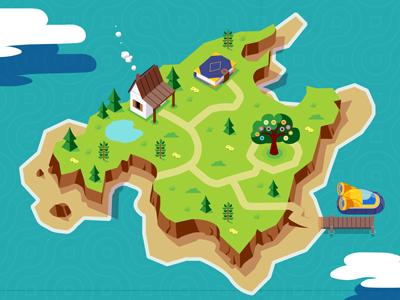
Employment
Supporting Students with Disabilities in Career Exploration and Workforce Readiness
Professionals play a vital role in helping students with disabilities explore careers and prepare for success in the workforce. Whether students need guidance on career paths, support in reaching their goals, or work experiences, you can provide essential assistance.
Encourage students to reflect on their strengths, challenges, and workplace support needs. Teaching self-advocacy—like requesting accommodations and communicating effectively—sets them up for long-term success. Explore the resources on this page to learn more.
This short video shows the positive impact of inclusive, side-by-side work. It highlights how supportive workplaces boost confidence, independence, and performance for employees with disabilities, showing what’s possible when inclusion is intentional.
Transition School to Work – Dream Big!
The Department of Rehabilitation Services (DRS) partners with school districts and community organizations to provide high school students with disabilities a range of valuable services—including Pre-Employment Transition Services (Pre-ETS), School Work Study, Work Adjustment Training, and more. These valuable services help them prepare for competitive integrated employment (CIE). To learn more, watch this video and visit the OK DRS Transition website.
Community Engagement & Independent Living
Community Engagement and Independent Living
As educators, counselors, and professionals, you play a vital role in preparing students with disabilities for a future where they can live as independently as possible and actively participate in their communities. Each student’s path will be unique—whether that includes living on their own, securing meaningful employment, building relationships, or contributing to their community.
Independence requires developing essential life skills such as meal preparation, money management, household maintenance, transportation, personal healthcare, and social engagement. These skills take time to build, but with the right support, students can gain the confidence and ability to navigate adulthood successfully.
Families, educators, and support networks can help students create a plan, develop new skills, and explore various living and working options. Hands-on experiences in real-world settings—such as workplaces, homes, schools, and community spaces—are invaluable in preparing students for the future.
While transitioning to adulthood is an exciting milestone, it also presents challenges. Encouraging self-advocacy, problem-solving, and resourcefulness will empower students to overcome obstacles and seek support when needed.
Explore the resources provided here to support your students in planning and building the skills they need for a successful and fulfilling future!

Resources

